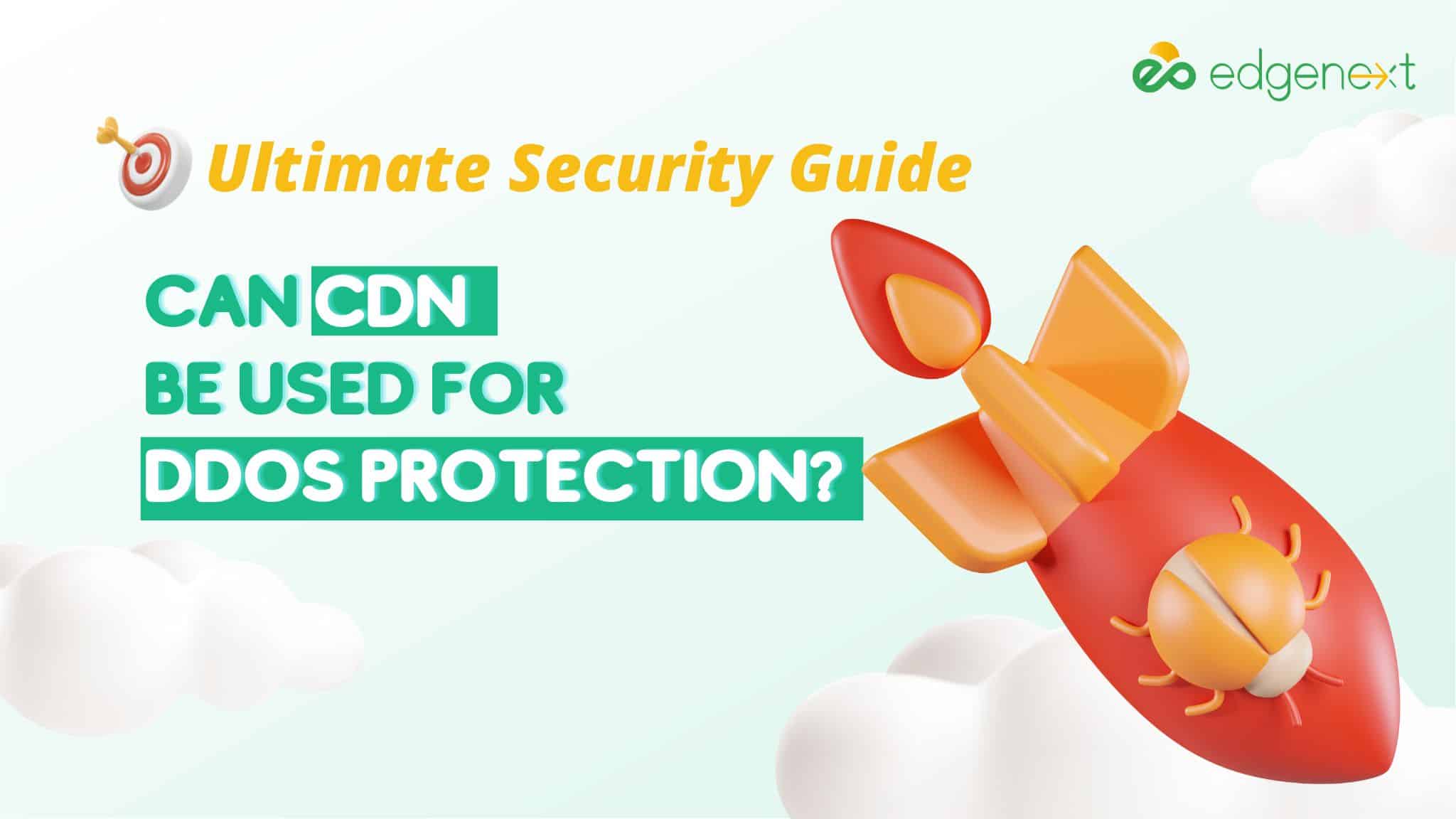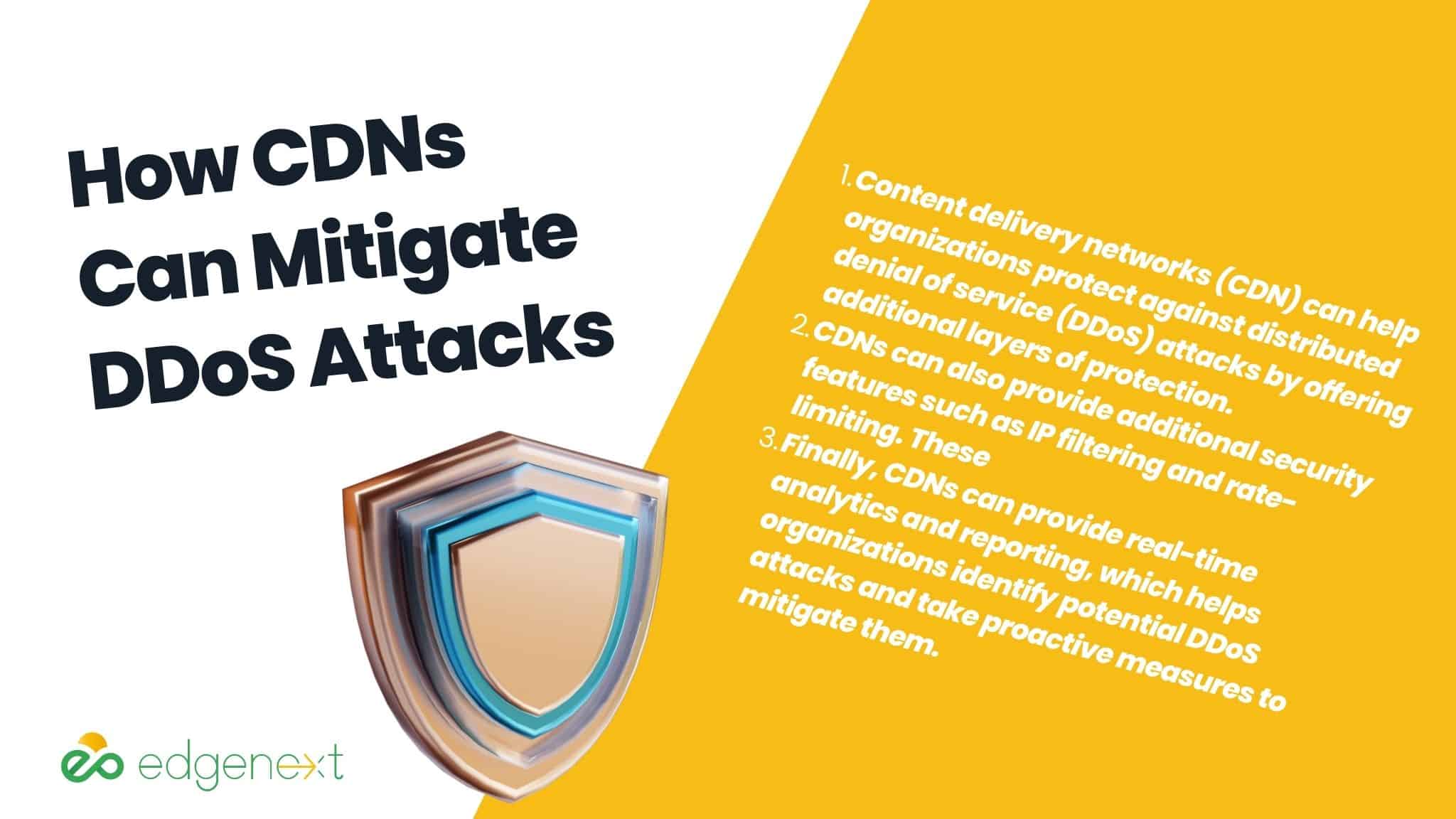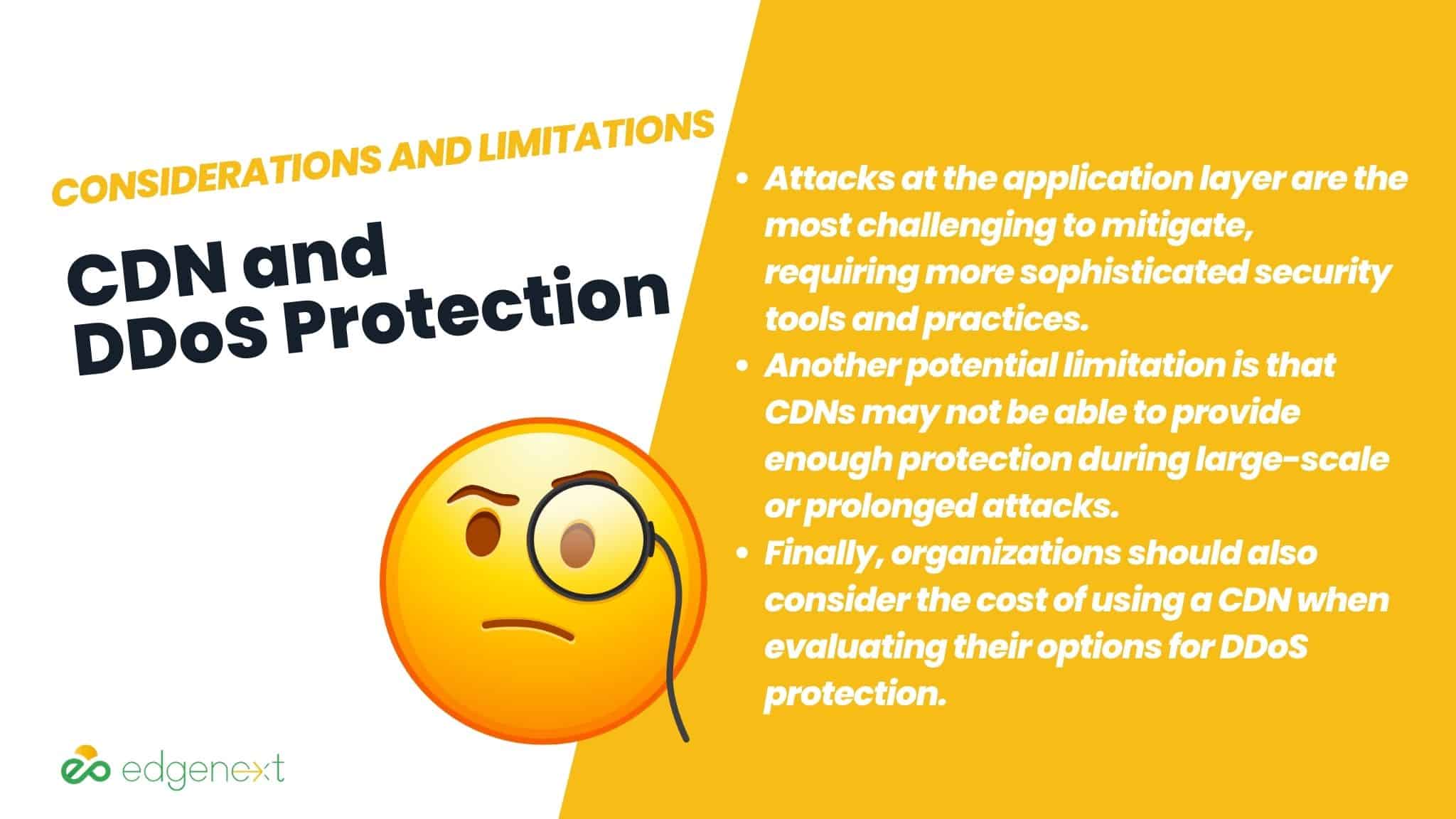
A distributed denial of service (DDoS) attack is a malicious attempt to disrupt or turn off the normal functioning of a website, network, or system by overwhelming it with a flood of requests from multiple sources. With the internet becoming increasingly complex and attackers more sophisticated, organizations need to ensure that their networks are secure from these attacks. One way of doing this is to use a content delivery network (CDN) for DDoS protection. This article will explore how CDNs can be used as an effective tool in the fight against DDoS attacks. We will look at what a CDN is and how it works to protect your data and services from malicious actors.
A distributed denial of service (DDoS) attack is a malicious attempt by attackers to disrupt or turn off the normal functioning of a website, network, or system by overwhelming it with a flood of requests from multiple sources. The goal is to prevent legitimate users from accessing the resources they require. It can be done through various methods, such as flooding servers with traffic, exploiting vulnerabilities in the system, or using a combination of both. DDoS attacks can cause severe damage to an organization as they impact the availability of services and data and can often result in reputational damage to the affected company.
DDoS attacks are typically initiated through botnets, networks of computers that have been compromised by malicious software and are under the control of the attackers. The attackers will send commands to the compromised machines to direct them to bombard the target with a flood of requests, thus disrupting its services and data availability. DDoS attacks can also be done manually by sending out malicious traffic through various methods, such as spoofing IP addresses or using an amplified attack mechanism.
The impact of a successful DDoS attack can range from minor disruption to a complete shutdown of the target service. The cost to businesses can be significant, both in financial terms and lost business opportunities. It can also lead to reputational damage, as customers may have difficulty trusting an organization that is seen as vulnerable to attacks.
A content delivery network (CDN) is a globally distributed system of servers and data centers that deliver web content faster and more reliably. A CDN aims to improve the speed, performance, and availability of web pages and services by caching the content in multiple locations worldwide. This helps reduce latency when users request resources from different geographic areas, as the content is delivered from a server closer to the user.
CDNs are used by businesses to improve the performance of their websites and applications and reduce bandwidth costs. They can also be used to protect against DDoS attacks, as they act as an additional layer of protection between the origin server and incoming traffic requests. By caching content in multiple locations, CDNs can absorb incoming traffic requests and reduce the impact of a DDoS attack. This is done by diverting malicious traffic from the origin servers to prevent them from overloading.
CDNs also offer additional features such as analytics, real-time reporting, and security measures, which help organizations better understand their network performance and take proactive measures against DDoS attacks.

Content delivery networks (CDN) can help organizations protect against distributed denial of service (DDoS) attacks by offering additional layers of protection. CDNs are designed to distribute incoming network traffic across multiple servers, which helps reduce the impact of a DDoS attack and prevents origin servers from becoming overwhelmed with malicious requests. This is known as load balancing, which can help ensure that services remain available and responsive when under.
CDNs can also provide additional security features such as IP filtering and rate-limiting. These features allow organizations to block or limit requests from specific IP addresses, preventing attackers from targeting their services. They can also limit the number of requests allowed from a single source, which can help prevent attackers from taking down services by overwhelming them with requests.
Finally, CDNs can provide real-time analytics and reporting, which helps organizations identify potential DDoS attacks and take proactive measures to mitigate them. By monitoring network traffic in real-time, organizations can quickly detect abnormal behaviors and take the necessary steps to protect their services from malicious actors.
Businesses of all sizes can benefit from using a Content Delivery Network (CDN) to protect against distributed denial of service (DDoS) attacks. Many organizations have experienced success with CDNs, citing increased performance and security and cost savings due to the reduced need for additional hardware or software solutions.
One example is Shopify, an e-commerce platform used by over one million businesses worldwide. Shopify implemented a CDN to protect against DDoS attacks, and since implementation, they’ve experienced improved network performance and availability and increased protection for their customers’ data. Shopify also found that using a CDN reduced the cost of attack mitigation by over 90% compared to purchasing and maintaining dedicated hardware and software solutions.
Another example is the popular online gaming platform Roblox. Roblox implemented a CDN to protect against DDoS attacks and experienced improved performance and enhanced user security. Roblox saw a 30% reduction in latency time due to the implementation of their CDN solution, helping them provide a better user experience and protect against malicious actors.
These examples demonstrate the value of using a CDN for DDoS protection, providing improved performance, enhanced security, and cost savings. By leveraging the capabilities of a CDN, businesses can ensure their services always remain available and secure.
While content delivery networks (CDN) can be a valuable tool for protecting against distributed denial of service (DDoS) attacks, there are some considerations and potential limitations that organizations should keep in mind.

For starters, CDNs can protect against DDoS attacks, such as those targeting on layer 3 and 4 and layer 7 resources. Attacks at the application layer are the most challenging to mitigate, requiring more sophisticated security tools and practices. Organizations looking to protect against these attacks should consider additional solutions such as WAFs and DDoS mitigation services.
Another potential limitation is that CDNs may not be able to provide enough protection during large-scale or prolonged attacks. While CDNs can help to reduce the impact of a DDoS attack, organizations may need additional solutions to protect against these threats fully. In addition, it is crucial for organizations to regularly review their CDN configurations and ensure they are properly optimized to maximize protection.
Finally, organizations should also consider the cost of using a CDN when evaluating their options for DDoS protection. While CDNs are generally more affordable than other solutions, they can still be costly for organizations requiring large bandwidth and resources.
When choosing a content delivery network (CDN) provider for DDoS protection, there are several factors to consider. First and foremost, organizations should look for a provider that offers robust security features such as IP filtering and rate-limiting. These features can help protect against malicious actors by blocking requests from specific IP addresses and limiting the number of requests allowed from any source.
Organizations should also look for CDN providers that offer analytics and reporting capabilities, as these can help them identify potential DDoS attacks and respond quickly. Additionally, evaluating the cost of using a CDN provider is important, especially if an organization requires large rebuntant bandwidth and resources.
Finally, organizations should evaluate the customer service and support offered by different CDN providers to ensure they get the support when needed. Assessing service quality is particularly important for organizations that require 24/7 monitoring and support. By considering all of these factors, organizations can ensure they are choosing the best CDN provider for their DDoS protection needs.
Using a content delivery network (CDN) for distributed denial of service (DDoS) protection is an essential step in ensuring the availability and security of services. CDNs can provide enhanced performance, improved security, and cost savings for organizations of all sizes. By evaluating the capabilities of different CDN providers and choosing one that offers robust security features, analytics and reporting tools, and quality customer service, organizations can ensure they are getting the best protection for their needs. With the right CDN in place, organizations can ensure their services remain secure and available at all times.
Take the first step towards protecting your services and data from DDoS attacks by exploring EdgeNext‘s comprehensive CDN solutions. Contact us to learn more about how our team of experts can help you get started today.
© 2025 EdgeNext Copyright All Right Reserved